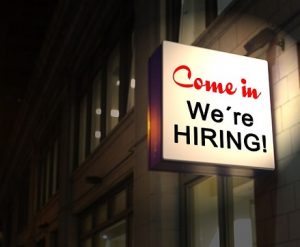“Most employers agree that they would rather employ a graduate with a 2:1 and evidence of work readiness than a graduate with a first class degree and no work experience at all.”
The good news is that a maths degree will give you a head start when applying for jobs, and that you will be in possession of a qualification which is highly respected and valued by employers.
However nowadays it is not enough to simply graduate with a good degree alone. Employers are looking for a range of other skills that not all maths-related degrees will give you.
These include communication skills, team work, mediation, leadership, adaptability, problem solving, business awareness, initiative, flexibility and enthusiasm. The Prospects website contains more information on the types of transferable skills which employers are looking for.
The easiest way to gain evidence of these skills (because it is not enough just to say that you have them) is to obtain relevant work experience whilst undertaking your degree. Most employers agree that they would rather employ a graduate with a 2:1 and evidence of work readiness than a graduate with a first class degree and no work experience at all.
Ideas for finding work experience as a maths undergraduate
Sandwich Years
If you haven’t yet applied for your maths degree or your institution offers this as a flexible option then you might consider  completing a sandwich year. This is where you spend a year working for a company in a placement which is related to your area of study, usually after you have completed the second year of your degree. This in-depth level of work experience is highly valued by employers and often leads to students gaining permanent jobs in their sandwich year company. Take a look at Ratemyplacement.com for further ideas.
completing a sandwich year. This is where you spend a year working for a company in a placement which is related to your area of study, usually after you have completed the second year of your degree. This in-depth level of work experience is highly valued by employers and often leads to students gaining permanent jobs in their sandwich year company. Take a look at Ratemyplacement.com for further ideas.
Summer Internships
Summer internships are shorter work placements which undergraduates complete during their summer vacation and again are highly valued by employers. They usually have a formal application process and some can be very competitive to get into. Look at careers websites such as Milkround and visit careers fairs for ideas. Applying early is highly recommended so that you have the best chance of being accepted onto a scheme.
Part-time jobs
Many maths undergraduates who work part-time do so in jobs which appear on the surface to be unrelated to their degree. Remember however, that working in a restaurant or temping in an office will still demonstrate transferable skills such as reliability, punctuality and team work. The same goes for unpaid work in university societies – being the president of the university film society might not be directly maths-related but shows that you can manage people, organise events and handle a budget successfully.
Education related activities
There are often lots of opportunities to work in the field of education while you are an undergraduate – both paid and unpaid. You might for example work in a summer camp, volunteer in your local school or even be employed by your university as a supervisor of first year students. One advantage of this type of work is that it can help undergraduates decide whether to pursue a career in teaching. However even if you don’t plan to become a teacher, working with young people demonstrates a level of maturity and responsibility which is well regarded by employers.
Whatever work experience you have or decide to get always make mention of this on your LinkedIn profile. It is recommended that every undergraduate has a LinkedIn profile as employers do look at this when they are hiring. There are lots of videos on how to make the most of your LinkedIn profile that show you how to do this. Make sure that everything on your CV is on your profile and ask any employers to write you a reference / endorsement. This really adds weight to your application showing employers that you have the all-important work-ready skills.
Be creative
Work experience doesn’t have to fit into one particular mould – what about approaching small or large companies or charities or schools to see if they need help with data analysis using Excel or asking the supermarket or shop where you are already working if there is a project you can do around inventory control, scheduling or queuing. There are also students with an entrepreneurial streak who run their own businesses, or work freelance as programmers or web designers.
How to decide on the best type of work experience
Choosing the best type of work experience ultimately comes down to what you want to do once you graduate, and what sort of experiences will prepare you best. This can be a particularly tricky question for maths students as they can go on to work in almost any field. Whilst many students do choose the so called typical careers of finance or teaching, maths graduates can be found in almost every sector and company in the country.
Here are some tips for choosing a career after your maths degree:
1. Browse the career profile section of this website to get ideas for traditional and not so traditional graduate maths careers.
2. Check out the section on who employs mathematicians – it gives plenty of ideas for companies to investigate for work experience opportunities.
3. Be proactive – make every effort to use your careers service – visit careers fairs, attend careers talks, talk to family and friends and recent graduates.
And finally…
Do something rather than nothing – it is better to undertake work experience with little idea of what you want to do when you graduate as opposed to having an empty hole on your CV. Often work experience can help you decide what you want to do in your career as well as what you might not want to do.







